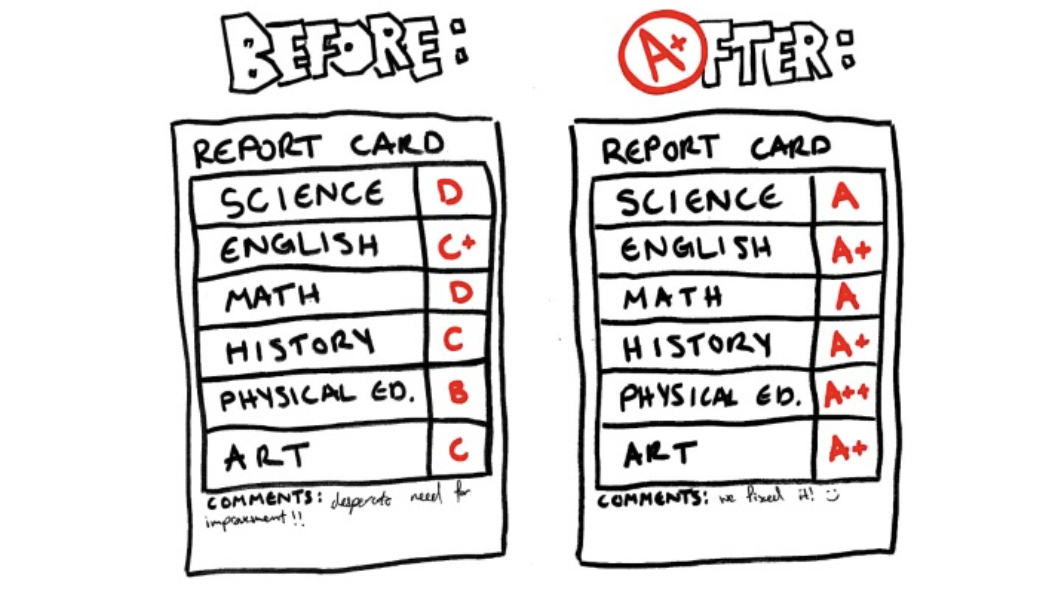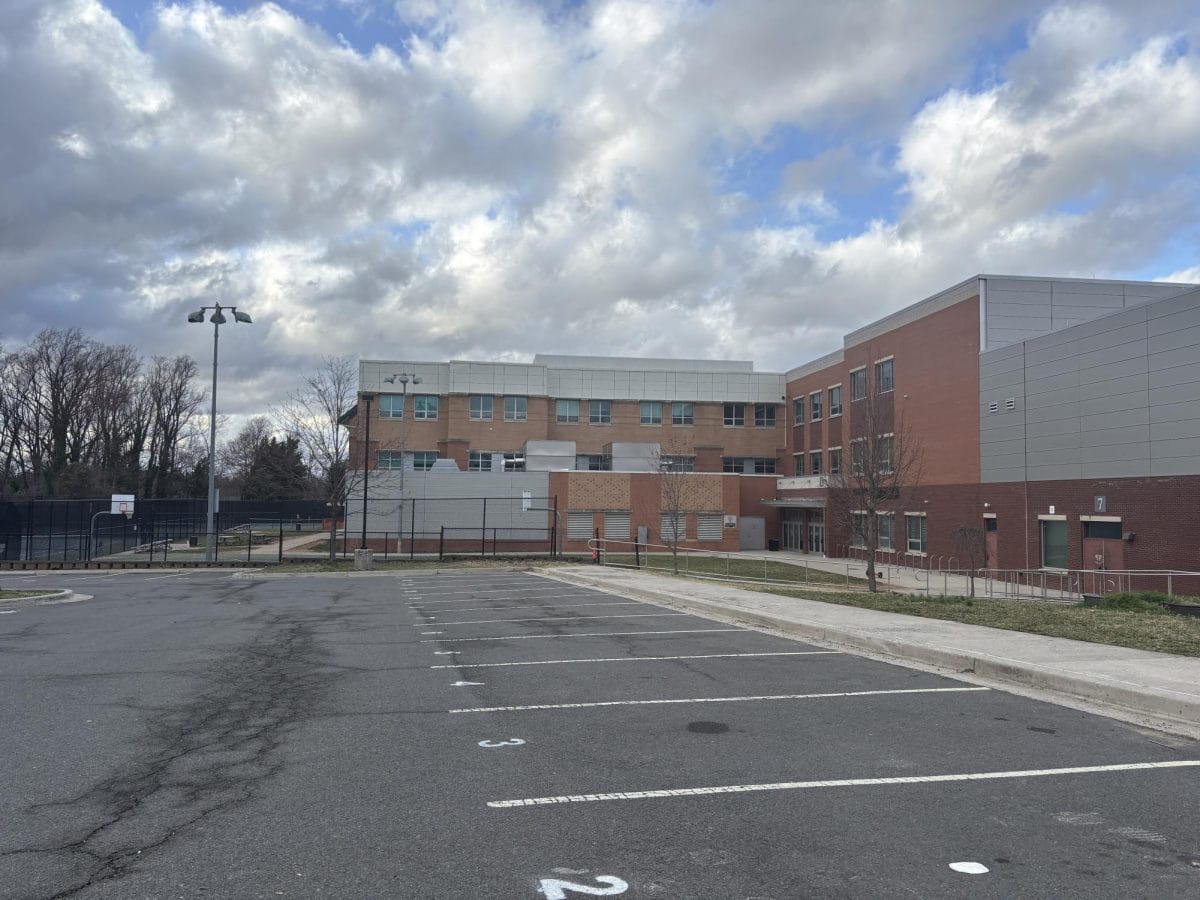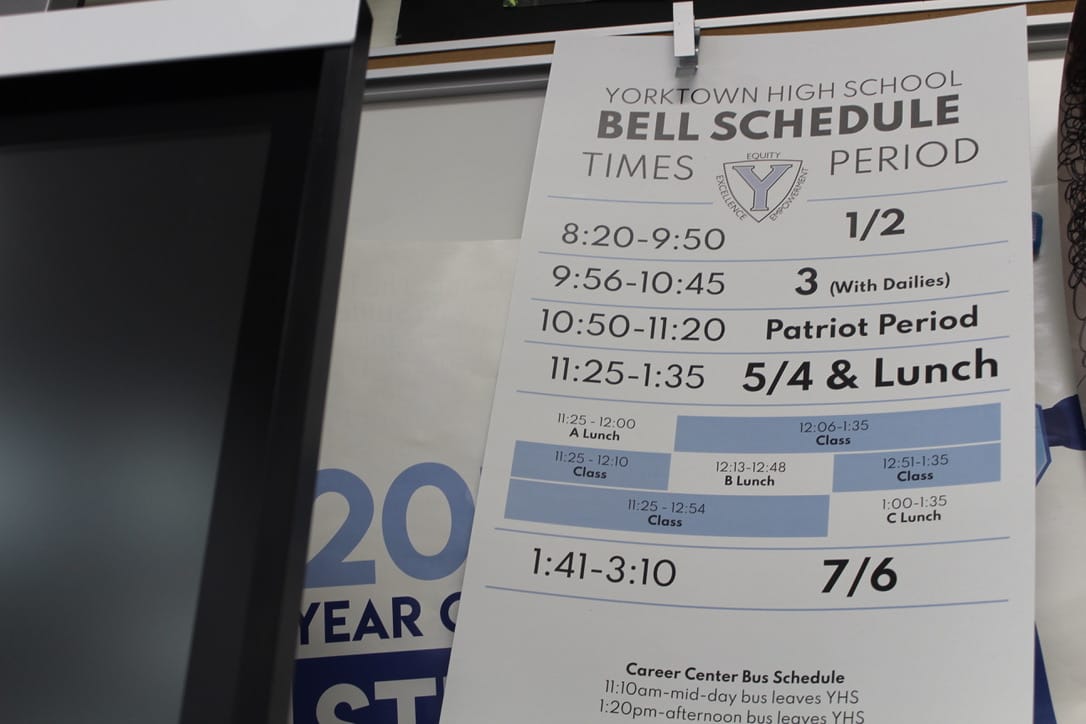Grade inflation has gone too far. This fall, Arlington Public Schools (APS) enacted a set of more lenient grading policies. Now, teachers are required to allow test retakes and can only take up to 10 percent off of late work turned in before the unit ends. These policies will undoubtedly contribute to the increase in grades our school has seen in the past couple years. Initially, the idea of higher GPAs sounds great. However, grade inflation is negatively affecting everyone and goes against our core values as a school.
Bringing grades up sounds beneficial to anyone. A high GPA is something to be proud of, so why would anyone question it further?
The harsh reality is that grade inflation hurts the student body in the long run. College admissions are already a stressful subject for students of our school. We have great courses and opportunities, making the application process extremely competitive. A common misconception is that grade inflation will help students get into college.
“Grade inflation might not be the best thing to prepare us for college … but it certainly helps us get there, and [college admissions] are competitive enough as is,” senior Adam Kamholz said.
Kamholz is exactly right—college admissions are cutthroat. However, the rise in grades may not help as much as the average student would hope.
When admissions officers view applications, they compare them to others from the same area. An overall increase in GPAs won’t go unnoticed, and ultimately it impacts their view of the applicant. A straight-A student is less impressive in a sea of other straight-A students.
However, grade inflation doesn’t only affect students. It also acts as an obstacle to teaching. Teachers aren’t able to motivate their students to try their best when it is easy to achieve a perfect grade. There isn’t an incentive to truly learn anymore.
The new policies harm the learning process. With the option of retakes, students don’t prioritize efficiently retaining information in time for tests. Additionally, our faculty fears the late work rule will damage work ethic.
The negative effects of grade inflation are also seen in teacher interaction with students. Both students and teachers feel that their relationships with each other are more disconnected than they have been in the past.
“I’m trying, but the policies make it really hard to have meaningful relationships with students,” AP English teacher Troy Olsen said.
The APS policies prohibit teachers from using their own discretion. In the past, a teacher could choose to offer a student a retake if they believed they deserved it. Now, that conversation doesn’t happen, and a student’s effort no longer plays a significant part in their grade.
By enacting these policies, APS is contradicting their core values. On the APS website, below the Yorktown Grading Policy, it is stated, “All students are to be held to high expectations.” Since students have the ability to turn in late assignments with a minimal point deduction they can no longer be held to high expectations.
Under our school’s core values, it states that APS will “ensure an exemplary education that is academically challenging.” The new policies that Yorktown put into place take away from the academic rigor of coursework that is generally expected at an APS school. The policies allow for students to show up to class unprepared and unfocused.
It is important to acknowledge the county’s good intentions with these policies. They are putting effort in to make learning easier for students, something that a good county system should do. However, good intentions don’t always lead to good policies.
These APS policies will undoubtedly lead to grade inflation, which ultimately makes the college application and learning experience more stressful for everyone. By implementing lenient grading tactics, the county harms everything our school stands for and everyone inside these walls. The only way to achieve an effective learning environment is to reverse the policies and make grades represent a student’s effort once again.












































